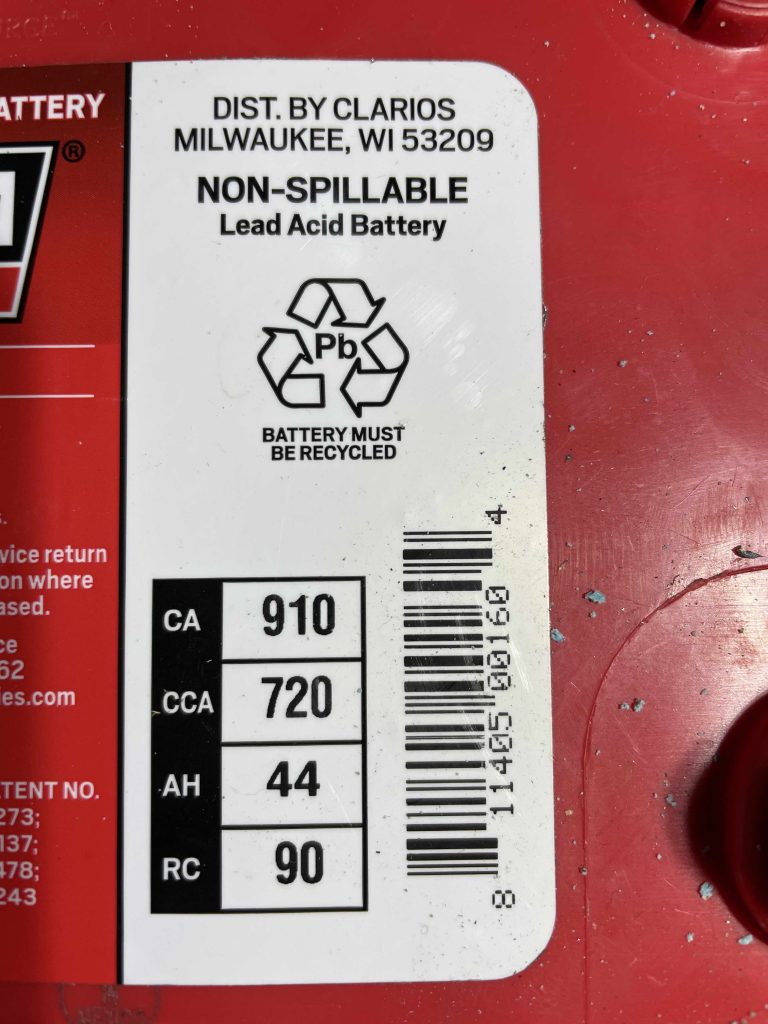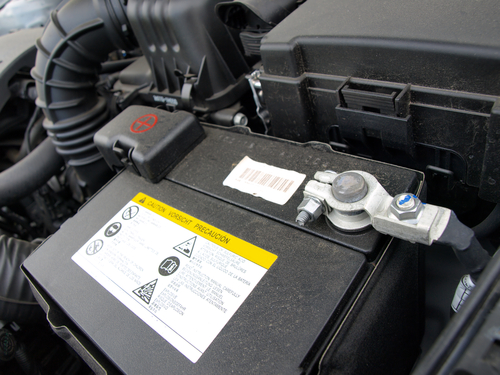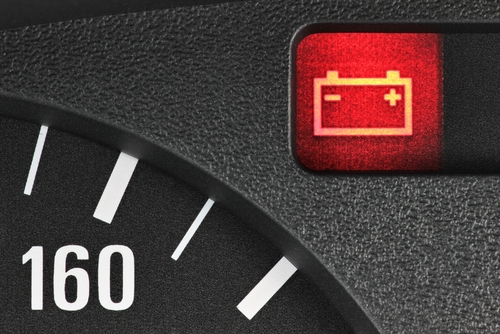When choosing a new battery, a lot of folks have a hard time with understanding what CCA means. Simply put, cold cranking amps (CCA) are a way of measuring a batteries ability to provide power to the starter in cold weather.
It is harder for a battery to provide power in colder weather. Auto batteries are no exception to this rule. CCA helps us determine the right battery to get so that your vehicle will have enough of a power reserve to start in the cold.
Vehicles with higher compression (more pressure) and more cylinders (more turning mass) are going to need a battery with a higher CCA.

There is no such thing as buying a battery with “too much” CCA, so don’t worry about that. In fact, most premium batteries will provide a CCA that is over the factory recommended amperage.
While that might seem like overkill, as the battery ages, it’ll last longer before the amperage gets too low for it to properly start the vehicle.
What are Cold Cranking Amps (CCA)?
The cold cranking amperage rating is the specific measurement of your batteries ability to provide amperage while maintaining at least 7.2 volts for 30 seconds at 0° Fahrenheit.
Once this test is run on the battery, a CCA rating is applied. You can find this on the battery sticker. It’ll either be on top of the battery, or on the side.
How to Determine the CCA You Need
We recommend that you purchase a battery that provides at least the minimum CCA needed. Anywhere that sells batteries will be able to provide you with the proper CCA needed for your engine.
It’s a simple fact that life is harder on a battery the further from the equator that you live. Buying a battery with a CCA that is even higher than the factory minimum will help your vehicle turn over better during sub zero weather.
Why a Battery With the Proper CCA is Important

Cold cranking amperage is important for two reasons.
The first is that a vehicle’s engine needs a battery with the proper cranking amperage for the starter to spin fast enough to turn the engine over. If there’s not enough cranking amperage for the starter it can lead to premature failure.
The second is that without the proper cold cranking amperage, when it gets really cold the battery may not be able to start the vehicle.
Common Questions Related to CCA:
Here are some of the more common questions associated with cold cranking amperage:
Can I put a Higher CCA Battery in My Car?
It is perfectly fine to put a battery with a higher CCA than your vehicle needs. All batteries are 12 volts (unless your car happens to be over 70 years old).
The limiting factor is going to be the batteries shape and size. You need to make sure that you are getting a battery that fits in the battery compartment.
Do Higher CCA Batteries Last Longer?
Higher CCA batteries do last longer. All batteries lose amperage over time. But, starting with a battery that has “extra CCA” compared to what your vehicle needs is only going to be a plus.
A battery with a high CCA will typically last longer before it degrades to the point that it can not be used.
Can I use a Low CCA Battery?
If the regular cranking amperage on the battery in question is above the recommended cold cranking amperage that is recommended, it will technically work if you live in a warm climate.
We don’t recommend doing this. The battery will only have the minimum amperage that you need at all times, and it’ll struggle or fail to start the vehicle when it finally does get cold.
When do I Replace My Battery

Here are some of the ways that you can tell your battery needs replaced.
- The battery light is on– This may mean that the battery is bad. It very well could also indicate that there is an issue with the alternator. While it’s not 100% accurate at all times, usually if the battery light comes on when you are driving, the alternator is at fault. If the battery light comes on after starting the vehicle, it’s usually the battery itself.
- Slow start– If the starter sounds like it is struggling to turn over the engine, that’s a good indication that the battery is not providing enough CCA to get the job done. This will be most prevalent on the first start of the day, and less prevalent when the engine is warmed up. This could also indicate that the starter is bad, but more often than not, it’s the battery that is at fault.
- Swollen or Leaking Battery– If your battery is noticeably leaking fluid or swollen, it should be replaced without delay.
You don’t replace your battery if there is a bunch of corrosion on the battery terminals. You would get a good wire brush or battery post cleaner and clean them off. Here’s a good video on how to clean battery corrosion with baking soda and a brush.
Conclusion: What CCA Means on a Battery
CCA means cold cranking amperage. It is important to use a battery in your vehicle that has at least the minimum cold cranking amperage for your vehicle. We hope this helps.
